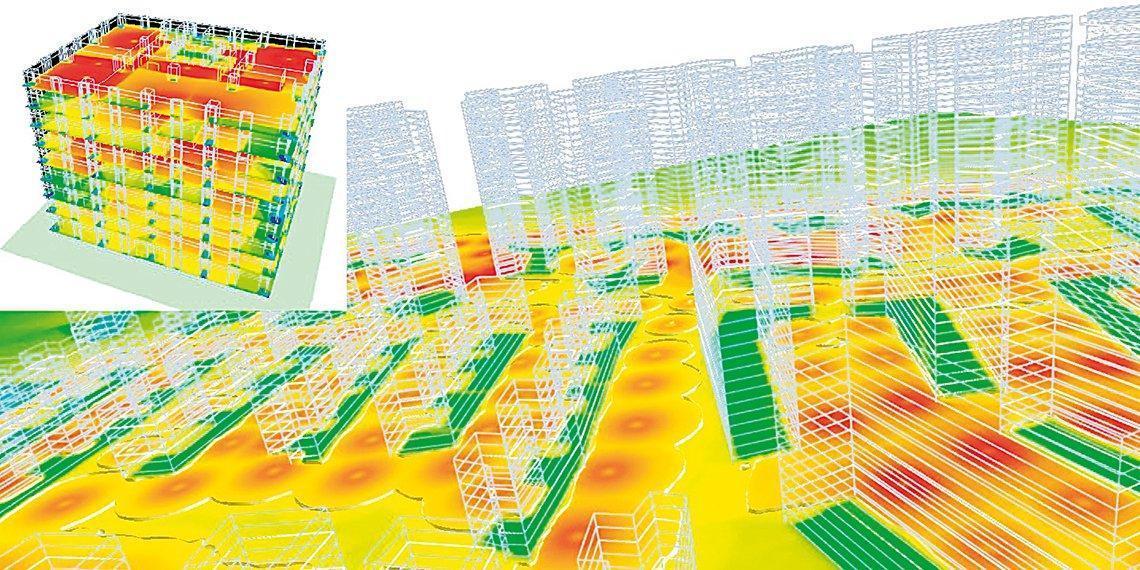The original purpose of mobile networks was to provide voice coverage when users were away from their offices or homes. This has been well served by outdoor macro networks, which could largely be planned and deployed using established outdoor RF analysis and planning tools. But the shift to mobile data has increased indoor usage, driving up subscriber densities and demand for more capacity. Today this represents an estimated 80% of total mobile data consumption.
The default planning position has been an outside-in approach, where macro coverage penetrates into buildings. However, network vendors and mobile operators delivering 3G, 4G and, in the future, 5G services to their customers in both indoor and outdoor environments such as office blocks, shopping centers, campuses or stadiums - are struggling to provide seamless connectivity.
As a result, the ‘one size fits all’ outdoor macro model is being supplemented by in-building systems with small cells, DAS and WiFi to improve indoor coverage and quality of service. But in doing so, the need for a new generation of RF design and optimization solutions has become evident.
As well as providing support for multiple-system technologies, radio planning for indoor/outdoor environments needs to deal with complex structures, terrains and materials as well as interference with macro cells. Recognizing the limitations of existing planning tools, an innovative and fast growing UK-based company called Ranplan has developed iBuildNet, a new suite of planning and optimization tools. iBuildNet offers a feature rich solution combined with ease of use and has the unique ability to model indoor and outdoor environments in coordination.
iBuildNet is a cost-effective and flexible, all-in-one solution that includes 3D modelling, along with powerful data analysis to automatically optimize AP locations, antenna type, power and channel assignment for dense HetNets. It also simplifies and unifies workflow and reporting along with asset, project and audit management, which speeds up and reduces the cost of designing and deploying complex indoor/outdoor wireless networks.
"While previously, LTE and WiFi networks were designed in isolation, with iBuildNet, network planners can fully-integrate multiple cellular technologies together with WiFi to create truly heterogeneous networks for in-building and metropolitan environments," said Alastair Williamson, CEO at Ranplan. "iBuildNet allows users to perform cross-system design and simulation with accurate modelling of coverage, traffic steering and handover between LTE and WiFi systems both inside and out."
Ranplan has recently increased the global availability of its iBuildNet suite, signing new reseller agreements in the Americas, Asia, Australasia and Eastern Europe.
One of these partners is Consultix that has offices in Cairo and is represented across the Middle East region by business partners and resellers. The partnership provides a comprehensive package for small cell, DAS and HetNet design using iBuildNet, along with Consultix’s multi-band CW Model calibration kits and design and training services.
Ranplan has also signed supply and support agreements with major operators including Telenor and a leading international telco spanning the Middle East, North Africa and Asia Pacific.
"These latest agreements are part of our drive to build a global reseller network with partners in a strong position to take iBuildNet to market and provide local support and expertise to customers across all regions," said Alastair Williamson.
It is clear that a more holistic approach to network performance modelling is essential to take the guesswork out of understanding how different types of wireless networks infrastructure will work together to create a seamless customer experience. Independent models of indoor and outdoor, RAN and backhaul, RF performance and service performance factors cannot take account of their overall interaction and will therefore be implicitly inaccurate. Instead, RF planning tools will increasingly need to offer greater functionality, flexibility and cost-effectiveness across indoor and outdoor environments which must be modelled in a coordinated way and balance the needs of the various technologies integrated in the network.
www.ranplan.co.uk










